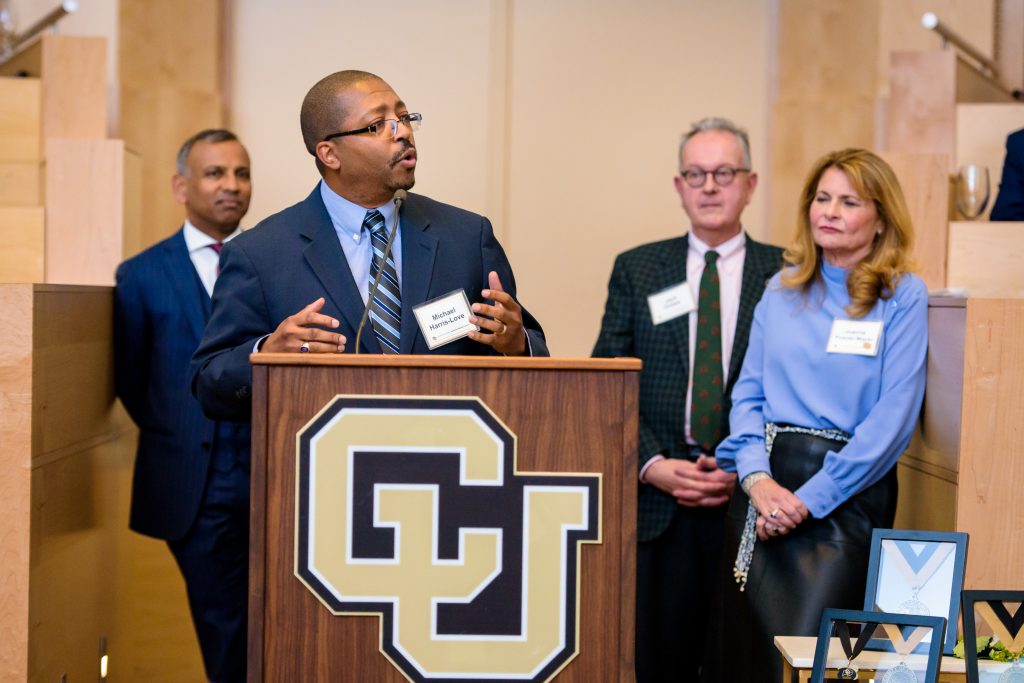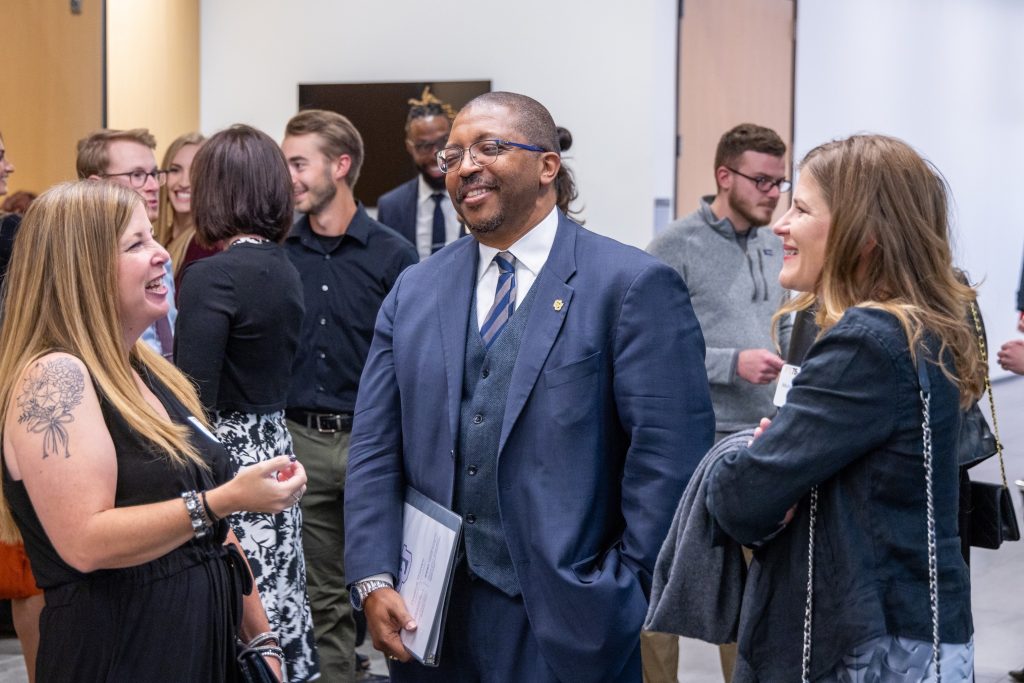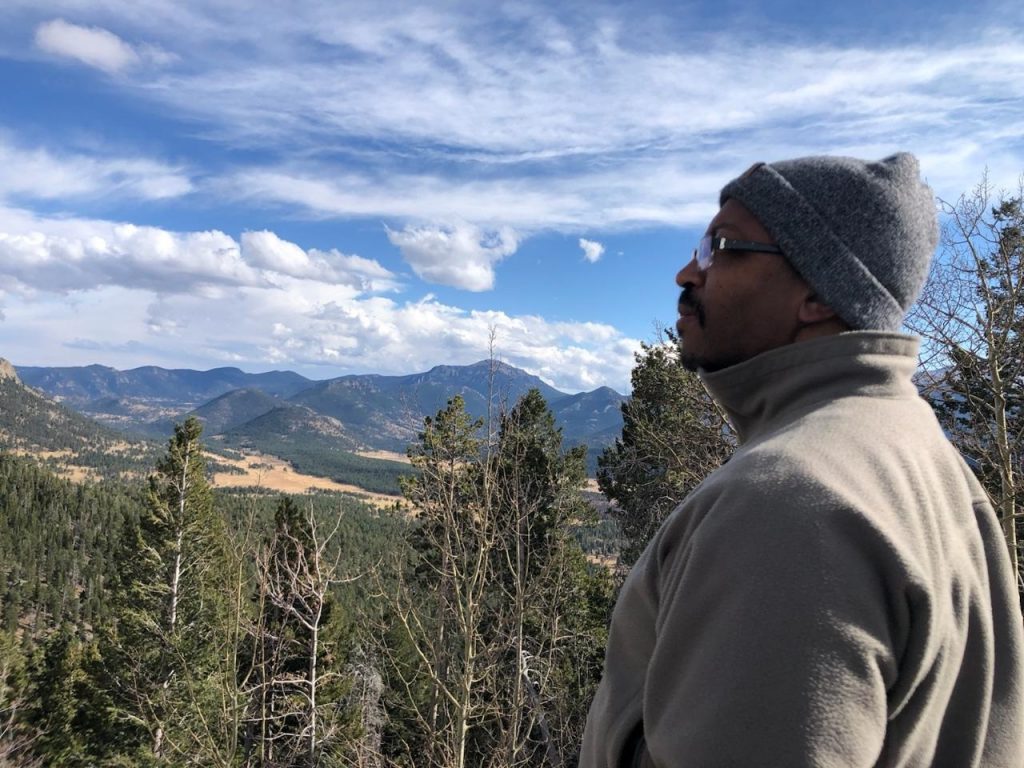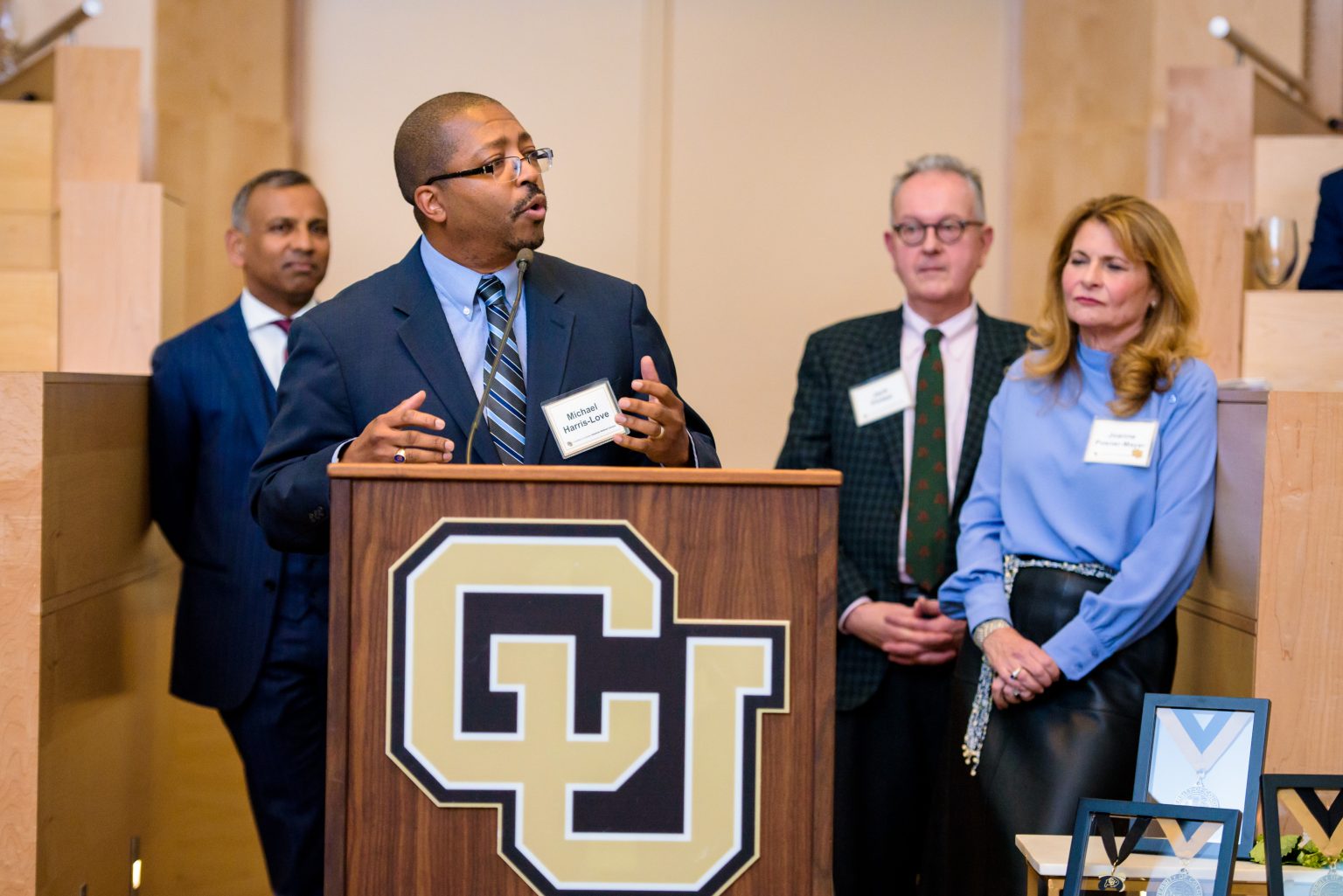Dr. Michael Harris-Love is the 2024 winner from CHHS of the President’s Alumni Award. Get to know him, his pathway to becoming a physical therapist, and what it means to him to be recognized with this award.

- What are some experiences at Northern Arizona University (NAU) that have shaped your career?
As a first-generation college grad who was raised by a single parent in East Detroit, there was no clear path to attaining a college education. Seeking a drastic change in direction, I moved from Detroit to Phoenix, AZ, after high school to find work and figure things out. I worked in temporary jobs during the day, attended a technical college at night, and eventually landed an entry-level position with Motorola in Scottsdale. After working and saving funds for about 6 years, I enrolled at NAU with the intention of studying full-time and earning my degree. However, my car engine died during my first semester and wiped out about half of my savings. So, I looked high and low for another job and found work in the Comparative Physiology and Functional Morphology Laboratory within the NAU Biology Department. Suddenly, I was immersed in the very unfamiliar world of antelope muscle bioenergetics and rattlesnake muscle mechanics. The lab director, Dr. Stan Lindstedt, helped me to obtain an Arizona NASA Space Grant during my senior year. Upon enrolling at NAU, research was not even a passing thought—yet there I was studying respiratory muscle physiology in bike riders involved in high-altitude training. The NASA undergraduate fellowship provided me with the chance to give a platform presentation at a conference, publish a scientific abstract in a major journal, and network with people who had scientific careers. My career trajectory had completely changed thanks to the NAU Biology Department and Dr. Lindstedt’s willingness to take a chance on me.
2. How does your time as a student here at NAU help with your career as a professor guiding the future generation of health professionals?
I recall wanting to take as many exercise science courses as I could at NAU, but being forced to take a philosophy class in order to meet my humanities requirements. As it turns out, the class that I didn’t want to take ended up impacting me the most. Professor Wood made the point that we weren’t there to memorize the names and key ideas of the leading philosophers. Rather, we were there to learn how to “defend our minds against philosophy.” As we consider the relatively young state of rehabilitation science or even the latest trends in continuing clinical education, it is our students who will be at the frontlines in the defense against bad ideas and unchecked bias. Given the dual challenge of a continually changing knowledge base and the increased generation of potential misinformation, students have to develop the tools needed to interpret and discern the information that they receive.
3. What is your favorite part about teaching?

While introverts are challenged by all that teaching entails, it is incorrect to assume that introverts do not like teaching or cannot develop a high degree of competency in the classroom. It’s true that teaching large survey courses has never been my favorite thing, but I do derive a great deal of satisfaction from clinical teaching experiences, seminar-style teaching for graduate students, experiential teaching in research settings, and one-on-one mentorship sessions with trainees. My favorite part about teaching is that it is often a reciprocal process between the teacher and the student where both parties ultimately benefit.
4. What are some ways you enjoy giving back to the community?
My recent volunteer efforts have included participation in mentorship and career development activities for local Colorado schools such as Gateway High School, STEM School Highlands Ranch, and Aurora Science and Tech High School.
5. What would you say to someone considering a career in healthcare?
Several fields within healthcare, such as physical therapy, will continue to be in-demand careers in the years ahead. However, a “good career” should not be confused with a career free from considerable challenges. Anyone entering a healthcare field will need to always be aware of the volatility that lies within the 3rd-party payer system and the positive and negative disruptive impact that AI-assisted intervention models and alternative care delivery systems will have on healthcare careers in the near future.
6. Your mentorship of NAU PT Program students showcases your ongoing commitment to the university. Can you discuss the significance of mentorship in your career and its impact on the students you have guided?
My perspective on mentorship is shaped by my experience as a first-generation college student. Doctoral and postdoctoral candidates from humble beginnings or historically marginalized groups come to possess the hard-earned resilience and stoicism required to pursue goals once deemed beyond their grasp. People with these intangible character traits often excel in the laboratory and prove to be invaluable members of the scientific team. Such characteristics exist in many of our students who don’t come from a family legacy of higher education. It is up to us to recognize and build upon these gifts of adversity and experience for the benefit of us all. My strengths-based approach to mentorship largely comes from my undergraduate experience at NAU. It is gratifying to see students from my lab move on to start their own careers and assume a variety of leadership roles across the country.

7. Reflecting on your past leadership roles at NAU, such as President of the Black Honor Society and Secretary of the Arizona Student Chapter of the National Society of Black Engineers, how have these roles helped prepare you for your award-winning career?
Taking on student leadership roles at NAU reminds me of a saying by Alan Cohen: “Do not wait until the conditions are perfect to begin, beginning makes the conditions perfect.” Much of that still rings true about taking on a new role or a particularly challenging project. Moments of self-doubt or imposter syndrome should not impede our efforts to take on tasks and responsibilities that are consistent with our experience, talents, and values.
8. What does it mean to you to be recognized with the NAU President’s Alumni Award?
Choosing to leave everything behind and move to Arizona, committing myself to pursuing a physical therapy career, and then quitting my job to enroll at NAU were huge decisions for me. Being recognized with the NAU President’s Alumni Award is a full-circle moment and a fitting acknowledgment that graduating from NAU was a major turning point in my life.

